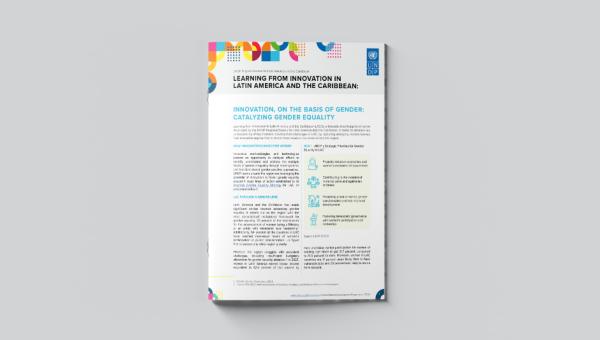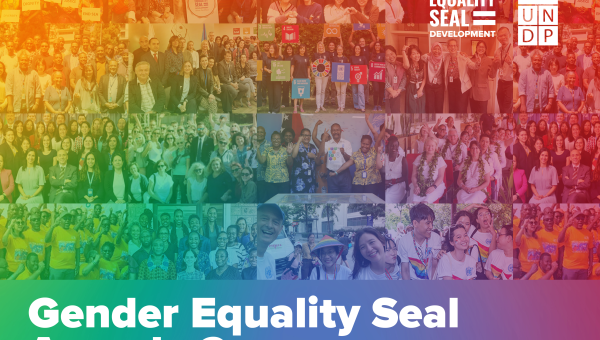UNDP in Latin America and the Caribbean
Gender Equality
Why is gender equality a critical factor?
Gender equality, with a focus on human rights, is both a development goal in its own right and a critical factor in achieving sustainable development. It underpins one of the key principles of the 2030 Agenda for Development: the concept of "leaving no one behind."
Why is it critical?
Gender equality not only has its own goal - Sustainable Development Goal (SDG) 5 - but is reflected in 45 targets and 54 specific indicators throughout the 2030 Agenda. It is a vital part of the fabric that makes up sustainable development.
This is why UNDP bases its work strategies on accelerating the process of gender equality and women's empowerment by ensuring gender mainstreaming in all programs or institutions with which it collaborates. The main areas of collaboration focus on: poverty eradication, combating climate change, improving maternal and adolescent health, gender equality and strengthening data on sustainable development.
UNDP supports partners to eliminate gender inequalities through gender-focused programs and works to ensure that all development efforts take into account women's experiences, needs and contributions. By removing structural barriers that undermine gender equality and promoting women's participation in decisions that affect their lives, it is possible to eradicate poverty and inequality, build resilience to disasters, climate change and conflict, and drive sustainable development.

 Locations
Locations









